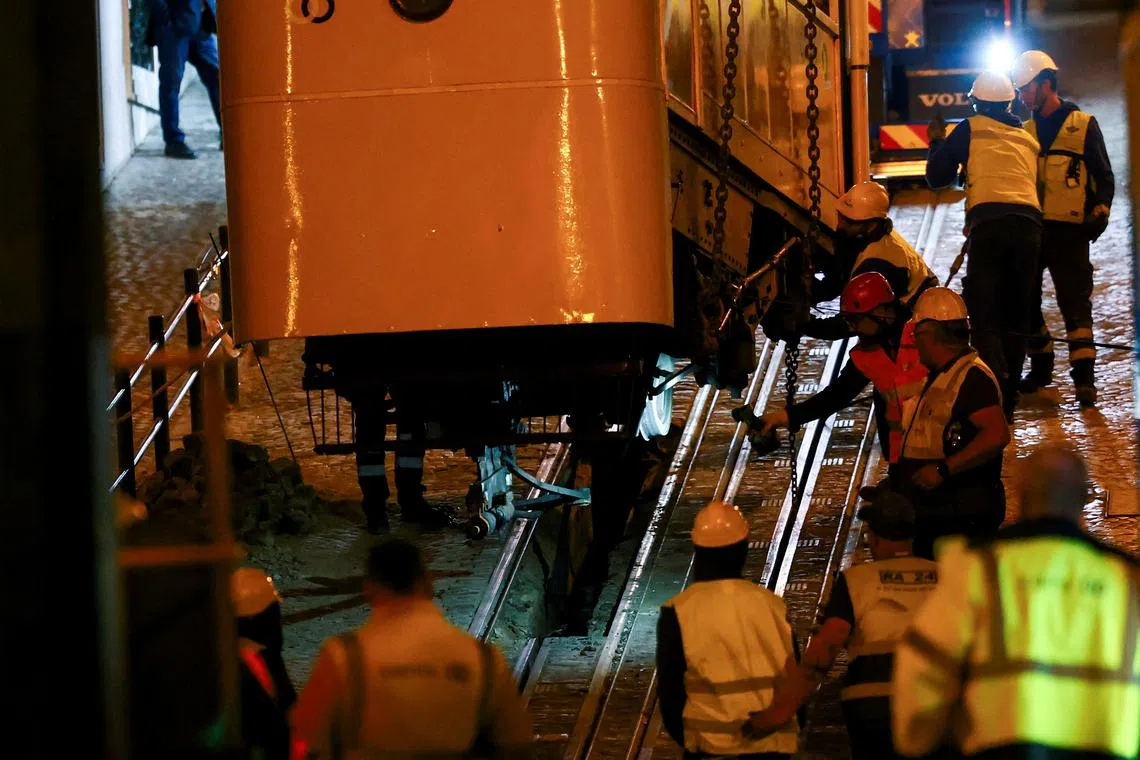Deadly Portugal funicular crash likely due to problems with cable, report says
Sign up now: Get ST's newsletters delivered to your inbox

The yellow tram-like carriage, which is popular with tourists, had crashed into a building after being derailed on Sept 3.
PHOTO: REUTERS
LISBON - Problems with a cable likely caused a Lisbon funicular railway popular with tourists to hurtle down a hill, killing at least 16 people
The yellow tram-like carriage, which carries people up and down a steep hillside in the Portuguese capital, hit a building after leaving the track on Sept 3, just metres from its twin at the bottom of a steep hill.
Portugal’s Office for Air and Rail Accident Investigations on Sept 6 released its first investigative report into the crash.
The report said the cabins had travelled “not more than about 6m” when they “suddenly lost the balancing force provided by the cable connecting them”.
“Cabin No. 2 suddenly reversed, its movement halting approximately 10m beyond due to its partial excursion past the end of the track and the burial of the underside of the trambolho (trolley) at the end of the cable trench,” it added.
“Cabin No. 1, at the top of Calcada da Gloria, continued its downward movement, increasing its speed.”
The report added: “The cabin’s brakeman immediately applied the pneumatic brake and the hand brake to try to halt the movement. These actions had no effect in stopping or reducing the cabin’s speed, and it continued accelerating down the slope.”
The report added an examination of the wreckage showed “the connecting cable had given way” at the attachment point to the cabin at the top of the hill.
A final report will be published later. REUTERS


